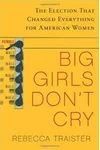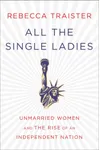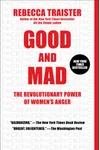Picture a fearless journalist who turned women’s stories into a rallying cry for change—meet Rebecca Traister! This American author and commentator has spent her career unpacking the messy, marvelous intersection of politics, gender, and history with a feminist lens. Known for her sharp wit and incisive prose, Traister’s books like All the Single Ladies and Good and Mad have sparked conversations that resonate far beyond the page.
With a knack for blending cultural critique with personal storytelling, Traister has become a leading voice in contemporary feminism. Whether she’s exploring the rise of unmarried women or the revolutionary power of female anger, her work challenges norms and inspires readers to rethink the world around them. Let’s dive into her journey, from farm life to feminist icon!
The Making of Rebecca Traister
Born in 1975 to a Jewish father and Baptist mother, Rebecca Traister grew up on a Pennsylvania farm, where open skies and hard work shaped her early years. She honed her intellect at Germantown Friends School in Philadelphia before studying American Studies at Northwestern University. After graduating in 1997, Traister traded rural roots for New York City’s hustle, kicking off her career with stints at Talk magazine and as a film critic for the New York Observer. Her time at Salon, where she covered women in politics and media for eight years, cemented her as a bold voice in journalism.
Rebecca Traister’s Unforgettable Stories
Traister’s books are more than just reads—they’re cultural touchstones. Her debut, Big Girls Don’t Cry: The Election That Changed Everything for American Women (2010), dives into the 2008 presidential race, spotlighting how Hillary Clinton’s campaign reignited feminist debates. A New York Times Notable Book, it won the Ernesta Drinker Ballard Book Prize in 2012. Then came All the Single Ladies: Unmarried Women and the Rise of an Independent Nation (2016), a New York Times bestseller that celebrates how single women have driven social change, from abolition to modern-day empowerment.
In 2018, Traister unleashed Good and Mad: The Revolutionary Power of Women’s Anger, a timely exploration of how women’s rage has fueled political movements, from suffrage to #MeToo. Released during the Kavanaugh hearings, parts of the book were read into the Congressional Record—a testament to its impact. Traister’s style is conversational yet scholarly, weaving history, interviews, and personal anecdotes into narratives that feel both urgent and universal. Her feminist lens doesn’t just analyze—it galvanizes.
Traister’s journalism, appearing in New York Magazine, The Cut, and Elle, mirrors her books’ vibrancy. Whether dissecting pop culture or political scandals, she brings wit and wisdom to every piece, earning her a National Magazine Award and a loyal following.
Why Rebecca Traister Matters
Rebecca Traister’s work has reshaped how we talk about women’s roles in society. By centering single women, angry women, and politically engaged women, she’s given voice to experiences often sidelined in mainstream discourse. Her books have inspired activists, academics, and everyday readers to see feminism not as a relic but as a living, evolving force. Traister’s ability to connect past and present makes her a vital figure in understanding America’s social landscape.
Beyond her writing, Traister’s television appearances on CNN and PBS amplify her message, making complex ideas accessible and urgent. Her influence extends to policy discussions and cultural shifts, proving that words can indeed change the world.
About Rebecca Traister
- Born: May 6, 1975, in Pennsylvania
- Key Works: Big Girls Don’t Cry (2010), All the Single Ladies (2016), Good and Mad (2018)
- Awards: Ernesta Drinker Ballard Book Prize (2012), National Magazine Award (2018), Mirror Award for Best Commentary (2012)
- Fun Fact: She’s married to public defender Darius Wadia and has two daughters.
Ready to join the feminist revolution? Snag All the Single Ladies or Good and Mad and dive into Rebecca Traister’s vibrant, world-changing prose!


